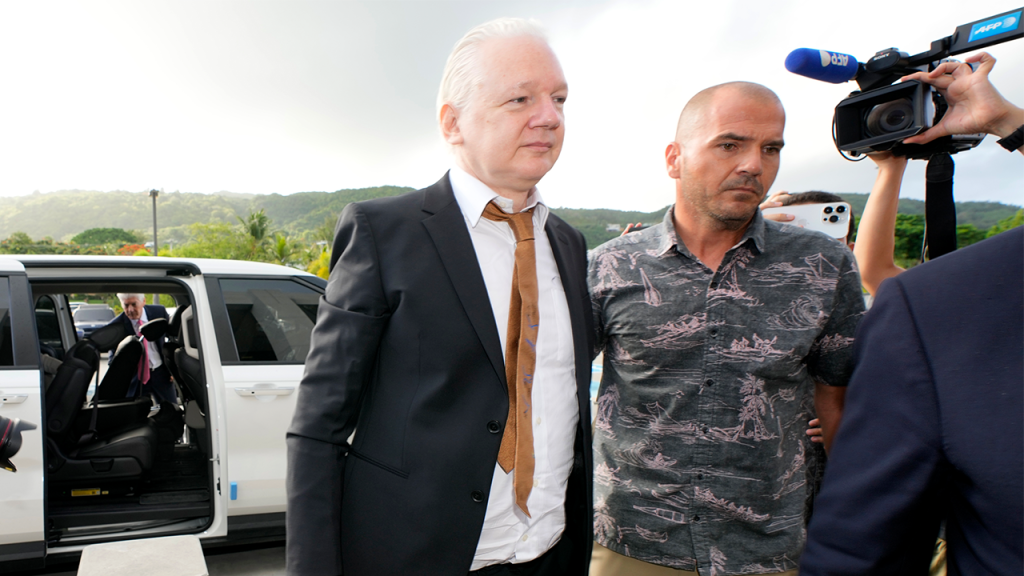WikiLeaks founder Julian Assange pleaded guilty and was sentenced to time served in a deal with the U.S. Justice Department, ending years of legal battles. The guilty plea was entered in Saipan, the capital of the Northern Mariana Islands, to avoid the continental U.S. Assange, who was facing 17 counts under the Espionage Act, now avoids the potential of spending up to 175 years in prison. The charges stemmed from the 2010 publication of classified U.S. military documents and videos that revealed war crimes and torture.
Assange had been trying to avoid extradition from the UK to the U.S. for years, where the charges against him were brought by the Trump administration. The cables leaked by U.S. Army intelligence analyst Chelsea Manning painted a gruesome picture of alleged U.S. war crimes. The deal required Assange to admit guilt to a single felony count but allowed him to avoid prison time in the U.S. and return to his family in Australia. Australian lawmakers have been pushing for his release and return home.
Australian Prime Minister Anthony Albanese has advocated for Assange’s case to come to an end, stressing that regardless of one’s views of Assange’s activities, his case has been ongoing for too long. The plea deal has left concerns about press freedom lingering since Assange was forced to admit to journalistic activities. National security reporters feel that the deal sets a dangerous precedent that could affect their work in the future. Assange’s lawyer, Jennifer Robinson, believes the case should concern journalists around the world.
Assange had been held in London’s Belmarsh Prison since being removed from the Ecuadorian Embassy in 2019, where he sought asylum to avoid extradition to the U.S. He had been facing sexual assault allegations in Sweden from 2012, which were eventually dropped. His lawyers argued successfully for the right to appeal his U.S. extradition on First Amendment grounds. Assange, the first journalist to be charged under the Espionage Act, questioned the Act’s conflict with the First Amendment in court but accepted the consequences.
The end of Assange’s case means that he can now return to Australia and be reunited with his family. His wife, Stella, expressed relief at the news that he would be freed, despite some uncertainty over whether the deal would go through. Assad’s release was seen as a victory for press freedom advocates, even though concerns remain about press freedom implications of his admission of guilt. The U.S. Justice Department was able to avoid an appeal hearing over the U.S. extradition, where Assange would have raised concerns over free speech protections.
In 2013, the Obama administration decided against indicting Assange over WikiLeaks’ publication of classified cables in 2010, out of concern for the potential indictment of journalists from major news outlets. President Obama also commuted Chelsea Manning’s sentence for her involvement in the leaks, leading to her release in 2017. The legal battles surrounding Assange have been ongoing for years, and his release signals a new chapter in the debate over press freedom and the prosecution of journalists.


